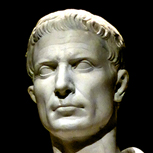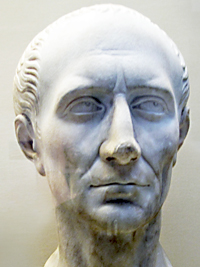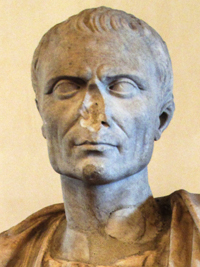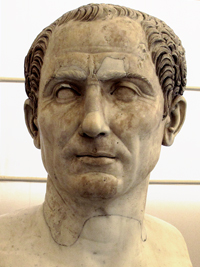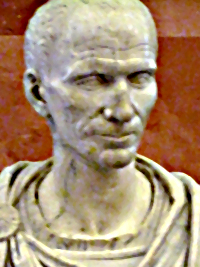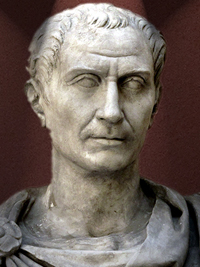The ROMAN CIVILIZATION
IMAGES OF THE ROMAN CIVILIZATION
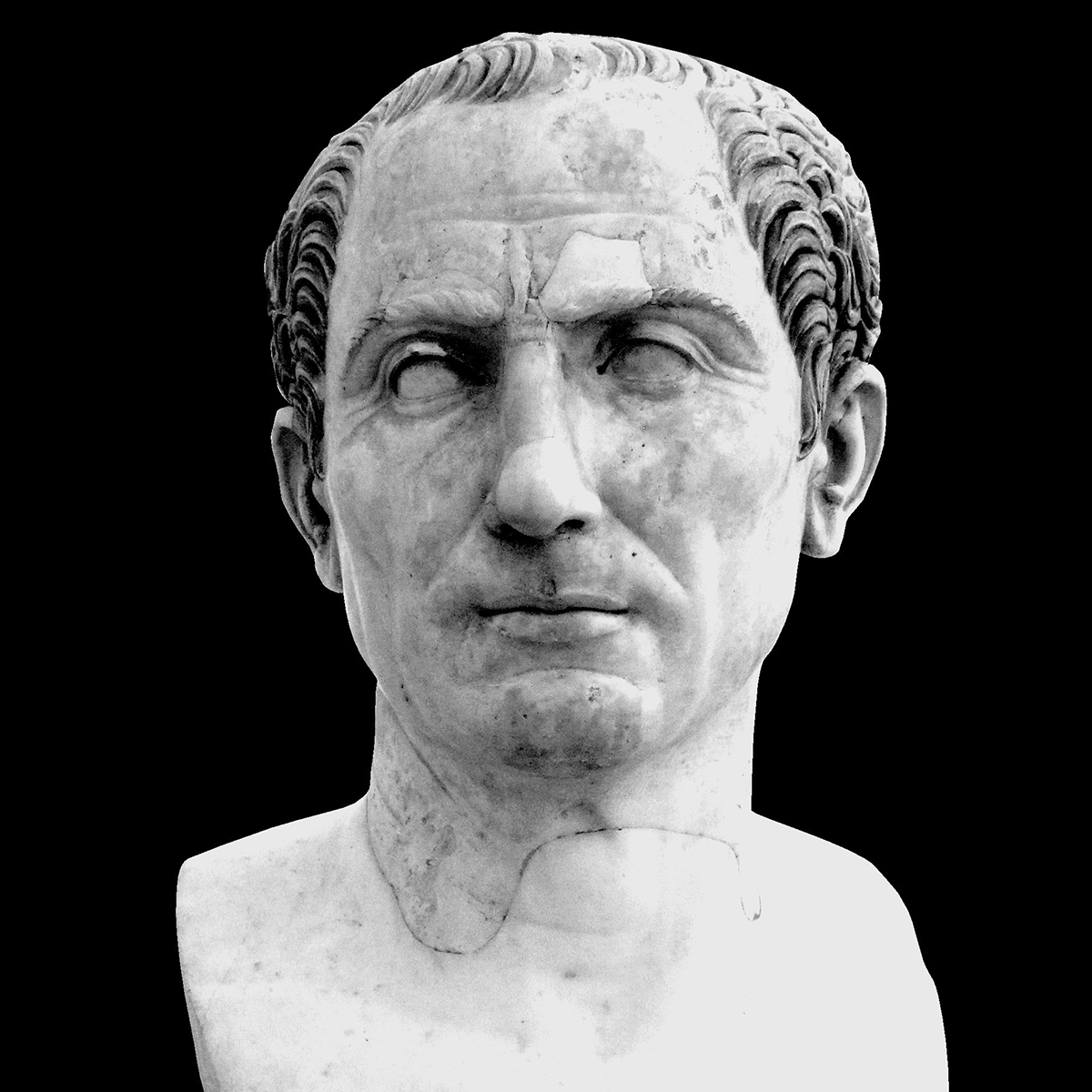
Gaius Julius Caesar
Gaius Julius Caesar
13 July 100 BC – 15 March 44 BC
was a Roman general and statesman. He played a critical role in the transformation of the Roman Republic into the Roman Empire.
Caesar's conquest of Gaul extended Rome's territory to the North Sea, and in 55 BC he conducted the first Roman invasion of Britain.
Caesar has always been one of the most controversial characters of history. His admirers have seen in him the defender of the rights of the people against an oligarchy. His detractors have seen him as an ambitious demagogue, who forced his way to dictatorial power and destroyed the republic. That he was gifted and versatile there can be little doubt. He excelled in war, in statesmanship, and in oratory.
Reform of the calendar. The calendar at the time was regulated by the movement of the moon, and this had resulted in a great deal of disorder. Caesar replaced this calendar with the Egyptian calendar, which was regulated by the sun. He set the length of the year to 365.25 days by adding an intercalary/leap day at the end of February every fourth year.[68] To bring the calendar into alignment with the seasons, he decreed that three extra months be inserted into 46 BC (the ordinary intercalary month at the end of February, and two extra months after November). Thus, the Julian Calendar opened on January 1, 45 BC This calendar is almost identical to the current Western calendar.
He established a police force, appointed officials to carry out his land reforms, and ordered the rebuilding of Carthage and Corinth. He also extended Latin rights throughout the Roman world, and then abolished the tax system and reverted to the earlier version which allowed cities to collect tribute however they wanted rather than needing Roman middlemen
doptimates and the populares
When Caesar'S governorship of Gaul was revoked by the senate. This left Caesar hanging high and dry, needing to fear prosecution for past irregularities once he returned to Rome.
For months on end there was diplomatic to'ing and thro'ing with Caesar remaining in Gaul, until he lost patience with the niceties of political life. The traditionalist Senatorial majority of the late Roman Republic. They wished to limit the power of the popular assemblies and the Tribunes of the Plebs, and to extend the power of the Senate, which was viewed as more dedicated to the interests of the aristocrats who held the reins of power. In particular, they were concerned with the rise of individual generals who, backed by the tribunate, the assemblies and their own soldiers, could shift power from the Senate and aristocracy.
The optimates' cause reached its peak under the dictatorship of Lucius Cornelius Sulla. During his reign, the Assemblies were stripped of nearly all power, the Senate membership was raised from 300 to 600, an equally large number of populares were executed via proscription lists and thousands of soldiers were settled in northern Italy. However, after Sulla's resignation and subsequent death, many of their policies were gradually reversed.
Besides Sulla, notable optimates included Lucullus, Cato, Milo, Bibulus and Brutus. Though they had opposed him for the entirety of his political career, Pompey the Great also found himself as the leader of the optimates' faction, once their civil war with Julius Caesar began. Optimates, along with disillusioned populares, who had carried out Caesar's assassination called themselves Liberatores.
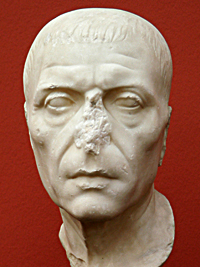
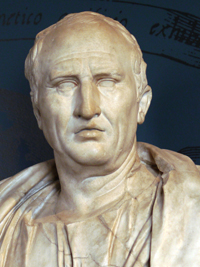
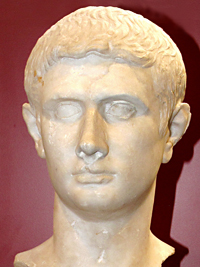
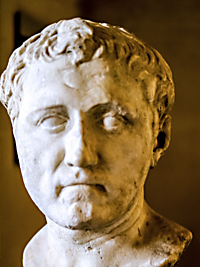
Republicans side
The Civil Wars
FROM REPUBLIC TO DICTATOR
Early Years
When Caesar was 16 his father, Gaius Caesar, died. He remained close to his mother, Aurelia.The Rome of Caesar's youth was unstable. At around the time of his father's death, Caesar made a concerted effort to side with the country's nobility. His marriage to Cornelia, the daughter of a noble, had drawn the ire of Rome's dictator, Sulla, who ordered the young Roman to divorce his wife or risk losing his property. Caesar refused and found escape in the military, serving first in the province of Asia and then in Cilicia.Sulla proscriptions the young Caesar, as Cinna's son-in-law, was one of Sulla's targets and fled the city, following the death of Sulla, Caesar returned to Rome to begin his career in politics as a prosecuting advocate. He relocated temporarily to Rhodes to study philosophy, but during his travels there was kidnapped by pirates. In a daring display of his negotiation and counter-insurgency tactics, he convinced his captors to raise his ransom. He then organized a naval force to attack them. The pirates were captured and executed.
When Caesar returned to Rome he began to work with Pompey, a former lieutenant under Sully, who'd switched sides following the dictator's death. Not long after, in 68 or 69 BC, Caesar was elected quaestor (a base political office) and then went to serve in several other key government positions under Pompey.
His personal life meanwhile offered up tragedy when his wife, Cornelia, passed away in 69 BC. Two years later he remarried, taking Pompeia, a distant relative of Pompey, as his wife. Their marriage lasted just a few years, and in 62 BC the couple divorced.
Caesar's political ascendency, however, continued. In 61-60 BC he served as governor of the Roman province of Spain. He also continued his close alliance with Pompey, which enabled him to get elected as consul, a powerful government position, in 59 BC.
Early Rule
As Caesar was cultivating his political partnership with Pompey, the astute leader was also aligning himself with Marcus Licinius Crassus,who proved to be instrumental in Caesar's rise to power. Cited as the wealthiest man in Roman history, Crassus offered financial and political support to Caesar.
Over the years Pompey and Crassus had come to be intense rivals. But once again Caesar displayed his abilities as a negotiator, This partnership among the three men came to be known as the First Triumvirate. For Caesar, this political alliance and the power it gave him was the perfect springboard to greater domination.
An early controversial move came when he tried to pay off Pompey's soldiers by granting them public lands. While initially unpopular, Caesar hired a collection of Pompey's soldiers to stage a riot. In the midst of all the chaos, he got his way.
Not long after, Caesar secured the governorship of Gaul (now France and Belgium), allowing him to build a bigger military and begin the kind of campaigns that would cement his status as one of Rome's all-time great leaders. Between 58 and 50 BC, Caesar conquered the rest of Gaul, up to the river Rhine. Even while he conquered Gaul, Caesar was mindful of the political scene back home, and he hired key political agents to act on his behalf in Rome.
Consulship and military campaigns
But Pompey, who grew envious of his political partner's power, Crassus still had never completely overcome his envy for Pompey. The three leaders patched things up temporarily in 56 BC at a conference in Luca that cemented Caesar's existing territorial rule for another five years, and granted Crassus a five-year term in Syria and Pompey a five-year term in Spain.
Three years later, however, Crassus was killed in a battle in Syria. Around this time Pompey revisited his old concerns about Caesar.
The Dictator
Leading troops across the river Rubicon on January 10-11, 49 BC. With Pompey further aligning himself with nobility the Senate , civil war proved to be inevitable. He decisively defeated Pompey at Pharsalus, in Greece, and pursued Pompey into Egypt, where he was killed. There, Caesar aligned himself with Cleopatra,in their civil war
Upon his return to Rome, Caesar was made dictator for life and hailed as the Father of his Country. For Caesar and his countrymen, his rule proved instrumental in reforming Rome.
He would serve just a year's term before his assassination, but in that short period Caesar greatly transformed the empire. He relieved debt and reformed the Senate by increasing its size and opening it up so that it better represented Romans as a whole. He reformed the Roman calendar and reorganized how local government was constructed. In addition he resurrected two city-states, Carthage and Corinth, which had been destroyed by his predecessors, and he granted citizenship to a number of foreigners. He also proved to be a benevolent victor by inviting some of his defeated rivals to join him in the government.
But Caesar was also careful to solidify his power and rule. He stuffed the Senate with allies, and required the same body to grant him honors and titles. He was allowed to speak first at assembly meetings, and Roman coins bore his face.
Assassination
Caesar's reforms greatly enhanced his standing with Rome's lower- and middle-class populations. But his popularity with the Senate was another matter. Envy and concern over Caesar's increasing power led to angst among a number of politicians who saw in him an aspiring king. History had shown that Romans had no desire for monarchical rule. Legend had it that by the time Caesar came to power it had been five centuries since they'd last allowed a king to rule them.
Caesar's wish to include his former Roman enemies in the government helped spell his downfall. Gaius Cassius Longinus and Marcus Junius Brutus were both former enemies who'd joined the Senate. Together, the two of them led the assassination of Caesar on the Ides of March (the 15th), 44 BC.
It's not altogether clear whether Caesar knew ahead of time of the plot to kill him. What was clear, though, was that the conspirators, who dubbed themselves "the liberators," needed to act fast. By all accounts Caesar had plans to leave Rome on March 18 for a military campaign in what is now modern-day Iraq. There he hoped to avenge the losses suffered by Crassus.
Brutus' involvement in the killing packed the most complicated backstory. He had originally sided with Pompey during Rome's earlier civil war, but then had been encouraged to join the government after Caesar's victory. His mother, Servilia, was also one of Caesar's lovers.
Following Caesar's death, a power struggle ensued in Rome, leading to the end of the Roman Republic.
